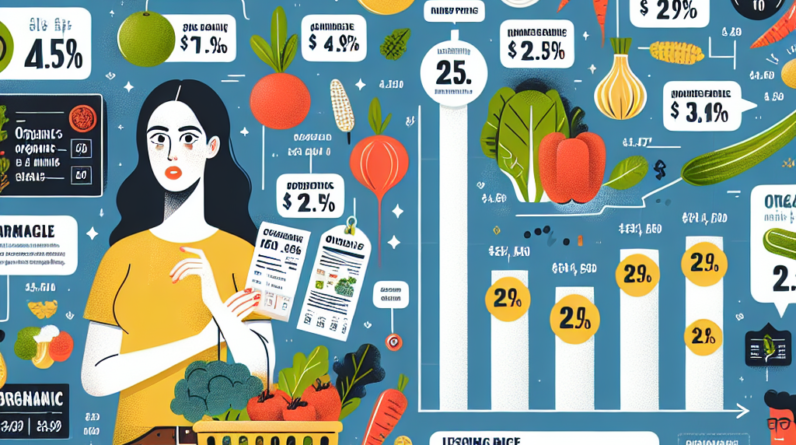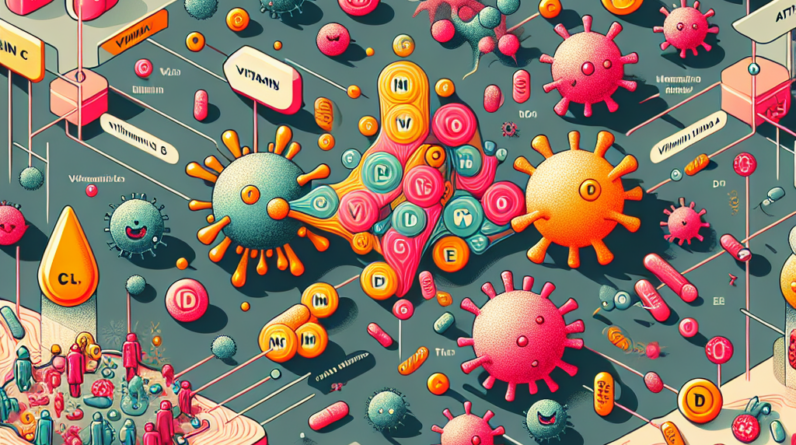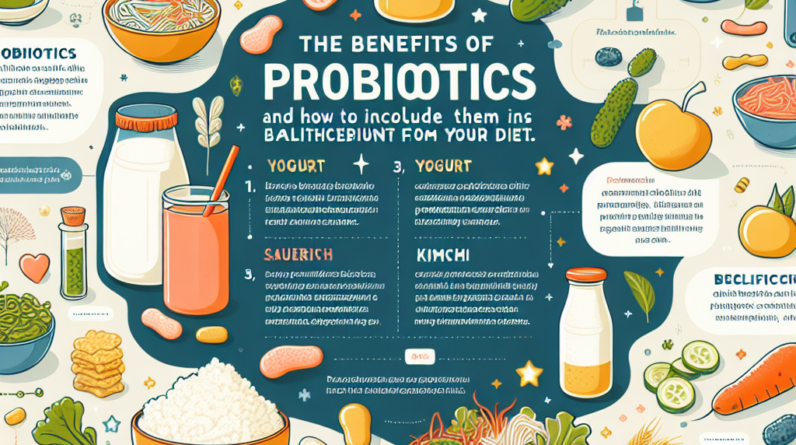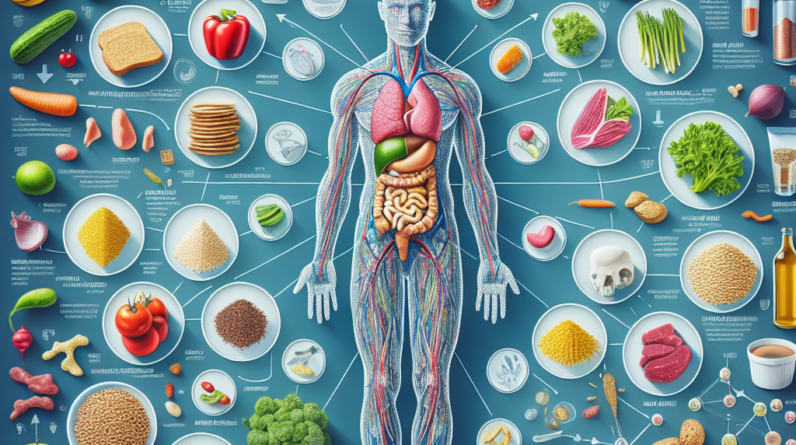
Understanding Organic Labels
What Do They Really Mean?
When I first dove into the world of organic food, I was confused by the labels. There’s the USDA Organic seal, the Non-GMO Project Verified label, and so many others. Each one comes with its own set of standards and requirements that can be a bit overwhelming. But understanding what these labels mean is the first step to recognizing why organic can be more budget-friendly.
Get a Huge Discount and Bonus! Try for 90 Days Risk Free
For instance, the USDA Organic label ensures that products have been grown without synthetic fertilizers and pesticides, which is not just better for your health but also for the environment. When you consider these long-term benefits, suddenly the price tag feels less hefty. It’s about valuing what you’re putting into your body.
Plus, knowing the meaning behind the labels can help you make more informed choices about what to buy. It enables you to prioritize where it matters most for your health and budget. Understanding these labels is an eye-opener and can ultimately save you money in the long run.
Which Organic Products Are Worth It?
Not all organic products are created equal, and I’ve found some surprisingly affordable options that pack a big health punch. For example, buying organic grains and beans can often be cheaper than their non-organic counterparts. They last longer and are more versatile—great for meal prepping!
Fruits and veggies can swing both ways. Sometimes, organic produce can be pricier, but local farmers’ markets often have competitive prices on organic options. I’ve learned that connecting with local farmers can score you some amazing deals while also supporting sustainable practices.
Meat and dairy are where I really see a difference in quality. When I switched to organic meat, the taste was noticeably better. While it can be a bit pricier upfront, I’ve found myself buying less because it satisfies my hunger more effectively. Worth it, right?
Are Organic Foods Always More Expensive?
I know this might sound surprising, but I’ve found that organic foods can often be more affordable than conventional options once you look beyond the sticker price. The key is buying in bulk! Many organic items have a longer shelf life than non-organics, so stocking up can save you cash over time.
Another cool tip I’ve picked up is subscribing to a local CSA (Community Supported Agriculture). By joining a CSA, you not only get fresh organic produce regularly, but you often pay significantly less than if you bought those same fresh goods at the grocery store.
Don’t forget discounts and sales—several stores have organic sections that rotate sales. I keep an eye on flyers or sign up for rewards programs at my favorite stores; it can lead to some sweet deals.
Get a Huge Discount and Bonus! Try for 90 Days Risk Free
Budget-Friendly Organic Shopping Strategies
Plan Your Meals
Meal planning has been a game-changer for me. I sit down every Sunday, look at what’s in season, and write a list of what I need. This approach really helps me avoid those last-minute impulse buys that tend to wreck my budget.
Using seasonal produce can save you so much money. And trust me, seasonal veggies and fruits taste way better—who doesn’t love fresh strawberries in the summer? Plus, they tend to be cheaper since they’re at their peak supply.
By planning meals, I also reduce food waste. I can buy exactly what I need, which conserves both food and money. And honestly, having a plan makes grocery shopping less chaotic and saves precious time!
Shop Smart at Farmers’ Markets
Farmers’ markets are one of my favorite ways to score organic goods. Not only do you get fresher produce, but the prices can be surprisingly reasonable. I chat with local sellers, and I’ve learned that many are willing to negotiate, especially at the end of the day!
Need a Serious Energy BOOST? Huge Discount Try for 90 Days Risk Free
Connecting with growers also provides insight into how your food is sourced, which adds value beyond the price. You’re supporting local businesses and securing fresher food that often tastes way better than what you find in grocery stores.
Plus, many farmers’ markets have deals on bulk purchases or deals of the week. It’s a lovely community atmosphere, and I’ve made some friends along the way while saving money!
Join Organic Co-ops or Buying Groups
Joining local organic co-ops or buying groups has been one of the best decisions I’ve made. These groups get together to buy organic products in bulk at a reduced cost. The savings are often significant—I’m talking about 20-40% off retail prices!
Good Health Solution is Easier Than Most People Think!
Take a Look for Yourself!
Co-ops tend to also focus on smaller, local producers, which means you know you’re supporting your community while being kind to your wallet. Plus, the sense of community is fantastic. Sharing recipes and tips with fellow group members has been a bonus!
Signing up for a co-op will take a bit of time, but the savings and community spirit make it so worthwhile. You’ll be surprised at how much you can save.
Understanding the Long-Term Benefits
Your Health is an Investment
I believe that investing in your health is one of the most crucial aspects of life. Eating organic foods that are free from harmful chemicals means I’m taking care of my body and mind. Sure, the initial costs might be higher, but if I can avoid medical bills from health issues caused by poor diets, then isn’t that worth it?
Organic foods often have higher nutrient levels, which also contributes to overall wellness and energy levels. I’ve noticed that since I switched to organic, I feel more energetic and focused throughout the day. This boost is something I value immensely in my fast-paced life.
The long-term benefits, both physical and mental, of prioritizing organic foods create a ripple effect throughout my life. Feeling good leads to better performance in work and daily activities; everything becomes interconnected!
Environmental Impact is Key
Supporting organic farming is about so much more than dollars and cents; it’s about making a choice for the planet. Organic farming tends to use sustainable practices that help keep our ecosystems intact. Knowing my food choices create healthier soil and cleaner water makes me feel good about what I’m eating.
By choosing organic, I’m reducing my carbon footprint and supporting biodiversity. This isn’t just a personal choice; it’s a commitment to nurturing the earth for future generations. Thinking about the bigger picture shifts my mindset about spending.
The environmental impact also aligns with feeling good about the products I purchase. Making ethical choices in my diet reinforces my overall values, and it’s a win-win that feels even better when I remember I’m saving money while doing it!
Community and Culture Matter
There’s something heartwarming about choosing organic. Supporting local businesses and farmers creates a sense of community that’s sometimes lost in larger grocery stores. When I buy organic, I’m investing in my community’s economy. Feeling connected while saving money just amplifies the experience.
Many local organic farms offer workshops or community events, allowing for deeper connections and knowledge sharing about sustainability and healthy living. This has enriched my understanding while bringing me together with like-minded folks.
Choosing organic is more than a financial decision; it’s about cultivating relationships and sharing knowledge that can benefit us all in the long run. The culture surrounding organic eating feels supportive, and that’s something truly priceless.
FAQs
1. Are organic foods really more expensive than conventional foods?
Not necessarily! While some organic foods can be pricier, many factors can make them more affordable in the long run, such as buying in bulk, shopping at farmers’ markets, and planning meals effectively.
2. How can I save money while eating organic?
Consider meal planning, shopping sales, buying in bulk, and exploring local farmers’ markets. Also, joining organic co-ops can significantly cut costs.
3. What are the health benefits of eating organic?
Organic foods are free from harmful chemicals and often have higher nutrient levels, contributing to better overall health and energy levels while minimizing the risk of chronic diseases.
4. Is there a significant taste difference in organic foods?
In my experience, yes! Organic foods, especially produce and meats, often have a better taste because they’re fresher and grown without synthetic chemicals.
5. How do I know if a product is truly organic?
Look for the USDA Organic label, which guarantees that the product meets specific organic standards. Always check other certifications as well, depending on your preferences.








